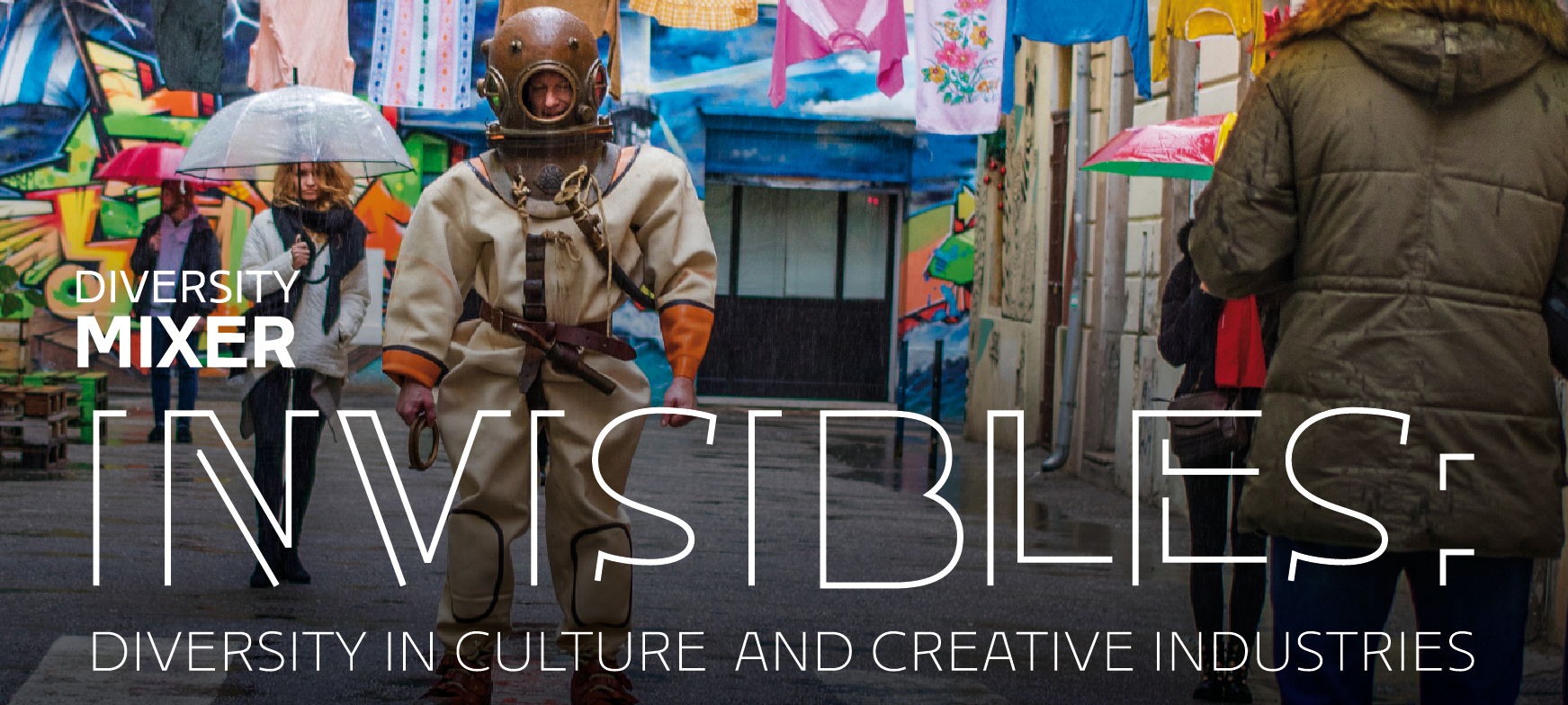
Alissa Quart is the Executive Director of the journalism non-profit Economic Hardship Reporting Project and the author of the non-fiction books including the acclaimed Squeezed: Why Our Families Can’t Afford America, as well as poetry books Thoughts and Prayers and Monetized. Her journalism appears regularly in The Guardian, The New York Times, and The New York Review of Books, among many other publications, and her poetry in Granta and the London Review of Books. In 2018, she won an Emmy for executive producing the documentary Jackson, one of a number of documentaries she has produced. In addition, she has been a Columbia University Graduate School of Journalism Alumna of the Year, a National Magazine Award finalist and a Nieman fellow. She teaches journalism, most recently at Brown University.
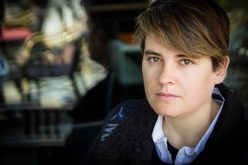
Antonela Marušić, born 1974 in Dubrovnik, studied Croatian Language and Literature. As a student she published her first poetry collection “Sezona Bjegova” (1994). She publishes poetry in several magazines, and she is the author of the novels “Posudi mi smajl” (2010), “Do isteka zaliha”(2013), and of the short story collection “O ljubavi, batinama i revoluciji”. Her prose and poetry have been translated into English, German, Slovenian, Albanian and Macedonian. She is one of the founders of the feminist portal Vox Feminae to which she contributes and for which she has been an editor since 2011. She collaborates with several Croatian national and regional portals and media on independent culture, literature, music and human rights (Novosti, Kulturpunkt, Proletter, Maz, CroL, LGBT.ba). She is currently working on a music documentary inspired by the phenomenon of female artists on Croatian independent music scene.
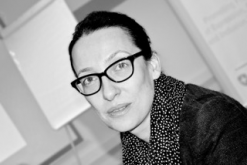
Danica Ilić has worked as a correspondent for the TV N1, CNN International broadcast partner, reported on Brexit, UK Elections, Panama papers, Wikileaks cables release, Snowden’s documents; as a news editor and presenter of the flagship co-production between BBC World Service and local re-broadcaster, RTV B92. She is an experienced online and broadcasting journalist, media trainer and workshop facilitator specialized in ethical journalism, inclusion and diversity, multimedia reporting, reporting on marginalized groups and responsible use of social media networks; held numerous trainings on inclusion and diversity in the media content and newsrooms including workshops for LGBT community in China, women’s organisations in Algeria and Morocco, people with disabilities in Macedonia; author of an online media relations guide for civil society activists published by the Media Diversity Institute; co-author of the report on deeply-embedded stereotypes against Muslims in many Western media outlets.

David Rajlić was born in 1984. Gamer from 1989, after getting a 286 PC until present day. Mathematics and physics graduate. Doctoral student at the Department of physics, University of Rijeka. Medical physicist at the Department of medical physics and radiation protection, University hospital Rijeka. Works in radiation therapy planning → Gaming that saves lives. From 2008 member of the organizing committee of the science fiction and fantasy convention Rikon responsible for scientific and video game programs. Organized and participated in many lectures, panels, and presentations concerning gaming, game development in Croatia, crowdfunding, microtransactions, game design, gamification in education, gaming accessibility, objectification and sexism in the gaming industry etc.
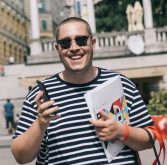
Domagoj Kučinić graduated musicology at the Music academy in Zagreb. He attended educational program of the Center for Women studies and Political school for artists (and all interested) organized by curatorial collective BLOK from Zagreb. In the last few years he worked in festival and concert organizations and wrote music critiques. At the moment he is a part of Rijeka 2020 – European capital of culture’s Kitchen of diversity team.

Ilija Milošević was born in 1980, Ilija Milošević finished musical high school and studied at the Faculty of Dramatic Arts in Belgrade, before starting his professional career in production, promotion and management in media, culture and entertainment industry, working on numerous local and regional projects amongst which Exit Festival, Refract and IDAHO Belgrade, as well as many other independent artistic and socially engaged initiatives and collaborative projects. Since Universal Music Group launched direct operations in Western Balkans in 2009, he is leading its Belgrade office responsible for activities of this global music company in Serbia, Montenegro and North Macedonia. As a passionate music and performing arts aficionado, he frequently appears in public as a journalist, speaker and a performer.
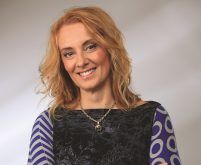
Ivana Nikolić Popović is an academic artist born 1966 in Zagreb. She graduated from the Faculty of Textile Technology in Zagreb and from the Academy of Fine Arts in Zagreb, Department of Painting. She is an expert in areas of branding and creativity and in understanding of creative and cultural industry’sstatus. She has extensive experience in development and coordination of communication projects in areas such as government projects, corporate social responsibility, culture, education and art. In 2013 she was elected President of Croatian Cluster of Competitiveness of Creative and Cultural Industries and in 2014 has been named President of the Coordination of Creative and Cultural Industries of the Croatian Employers’ Association. She is the author of many socially engaged and cultural-artistic projects like the network Creative Cities of Croatia, Croatian Creative Cities Award, Ilica Project: Q’ART, Moon of Creative and Cultural Industries, Days of Creativity and Innovation, Award for Creativity and Innovation.
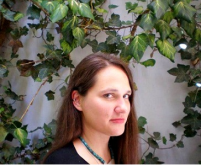
Jaka Primorac works as a Senior Research Associate at the Department for Culture and Communication, Institute for Development and International Relations (IRMO), Zagreb, Croatia. She holds a PhD (2010) in Sociology from the Faculty of Humanities and Social Sciences, University of Zagreb, Croatia. Her research interests intersect the fields of sociology of culture, sociology of media and communications and sociology of work. Her work is centered on the relationship between culture and economy, with the focus on cultural and creative labor issues and implications for cultural and media policies. Primorac collaborated on a number of research projects in Croatia and abroad (e.g. Jean Monnet project CULPOL, ‘Access to culture. Policy analysis’ EU Program Culture, COST Network ‘Dynamics of Virtual Work’, FP7 project MEDIADEM, cultural policy expertise for European Parliament, as a short-term consultant in cultural policy issues for World Bank, etc). Since 2008 she is a co-author of the Croatian country profile for the Council of Europe and ERICarts Institute’s project COMPENDIUM of Cultural Policies and Trends in Europe. Since 2019 she is the Deputy President of the Croatian Sociological Association (HSD) whose member she is from 2006.
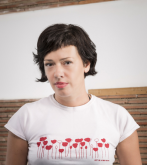
Lela Vujanić currently serves as Chief Program Manager of Kitchen of Diversity, part of Rijeka 2020 – European Capital of Culture program. Previously she has served as head of media department for the Ministry of Culture of the Republic of Croatia. She is specialized in non-profit media support and various forms of cultural organizing and programming. She was executive producer of Festival Željezara first edition and project manager/member of editorial board of “04, Magazine for Reality Hacking”. She has contributed to various print and online media outlets, writing about social movements, human rights and contemporary culture. She graduated philosophy and comparative literature at the University of Zagreb and was Hubert H. Humphrey fellow in journalism and new media at the University of Maryland, 2011-2012. She is a member of Women Antifascist Network of Zagreb.

Dr. Lev Manovich is one the leading theorists of digital culture worldwide, and a pioneer in application of data science for analysis of contemporary culture. Manovich is the author and editor of 13 books including AI Aesthetics, Theories of Software Culture, Instagram and Contemporary Image, Software Takes Command, Soft Cinema: Navigating the Database and The Language of New Media which was described as “the most suggestive and broad ranging media history since Marshall McLuhan.” He was included in the list of “25 People Shaping the Future of Design” in 2013 and the list of “50 Most Interesting People Building the Future” in 2014. Manovich is a Professor of Computer Science at The Graduate Center, CUNY, and a Director of the Cultural Analytics Lab that pioneered analysis of visual culture using computational methods. The lab created projects for Museum of Modern Art (NYC), New York Public Library, Google and other clients.
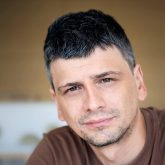
Luka Benčić (1977, Rijeka), journalist of daily newspaper Jutarnji list, singer, guitarist, composer, arranger and songwriter in band My Buddy Moose from Rijeka and keyboardist, arranger and one of the composers in band The Strange (Rijeka/Ljubljana/Zagreb). He is active in music field since 1993 and previously he has played in bands Avlijaneri and The Stoned Cows. With My Buddy Moose he has published three albums: „My Buddy Moose“ (2006), „Wonderful Feeling of Emptiness” (2010), “Shine! Shine! Shine!” (2013) i “IV” (2017). From 2010-2018 he has played keyboards and occasionally bass guitar in The Bambi Molesters, band from Sisak. He has played numerous concerts in clubs and festivals across region (Hrvatska, Srbija, Slovenija, Crna Gora, Bosna i Hercegovina), neighborhood countries and UK with My Buddy Moose, while he toured Europe and Brazil with Bambi Molesters. With band The Strange (fronted by American songwriter Chris Eckman) he has participated in production of acclaimed album „Echo Chamber“ (2018).

Mark Taylor is Senior Lecturer in Quantitative Methods at the Sheffield Methods Institute, University of Sheffield, and is AHRC Leadership Fellow (Creative Economy) until 2021. He is author of several academic articles on inequality in and around the cultural and creative industries and is (with Orian Brook and Dave O’Brien) author of the 2018 report ‘Panic! It’s an Arts Emergency’, published through the Barbican Centre in collaboration with the charities Create London and Arts Emergency.
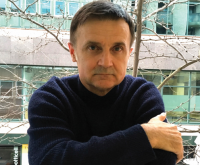
Milan Živković is a theater director and film screenwriter from Zagreb. He is involved in media research and media policy, for which he was responsible in the Ministry of Culture from 2012 to 2015.

Mirjana Matešić has been the director of Croatian Business Council for Sustainable Development since 2004. She is active in implementation of sustainable development policies in business as well as on the level of public policies and strategies. She has initiated the quarterly newsletter Business and Sustainability; she teaches CSR at Business School of Zagreb and is the co-author of the methodology of the CSR Index in Croatia. She has published two books and a number of papers in the field of sustainable development and CSR and has participated in a number of local and international conferences. She is the president of the Technical committee for social responsibility at the Croatian Standards Institute, member of the State Council for Sustainable Development and Environmental Protection and a lead trainer at UNICEF CSR Academy. She has a PhD in sustainable development, master’s in business and she is an engineer of ecology, all degrees obtained at the University of Zagreb, Croatia.

Nataša Antulov, born in Rijeka in 1987, graduated in dramaturgy from the Academy of Dramatic Art in Zagreb. She works as dramaturg in Croatian National Theatre Ivan pl. Zajc and teaches at the Academy of Applied Arts, University of Rijeka. She took part in numerous theater, TV and film projects, as author, dramaturge and director. She is a member of the collective Muzak and inclusive performing arts group Fifth Ensemble.
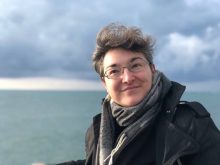
Olga Dimitrijević is (still) a Yugoslavian playwright and theatre author. She defended her M.A. theses “The body of the Female Folk Singer: Constructions of National Identities in Serbia after 2000” at Gender Studies at CEU, Budapest. Ever since, female folk singers and their songs strongly influenced her work. She constantly explores the topics of social struggles and injustices, female friendship and solidarity, queer histories, limits of political imagination, and possibilities of better world. Significant plays include: “I Often Dream of Revolution”, “My Dear”, “Folk Play”, “Workers Die Singing”, “Let’s Say Goodbye”. She authored the performances “I often Dream of Revolution”, “Red Love”, (based on Alexandra Kollontai’s novel), and “Freedom: the most expensive capitalist word” (with Maja Pelević, Bitef, 2016). Participated in exhibitions Ajnhajtclub (Freiraum q21, Vienna), Performance, Performativity and Document (Museum of contemporary art of Vojvodina, Novi sad) and Risk Change (Museum of modern and contemporary art, Rijeka). Won Sterijino Pozorje and Borislav Mihailović Mihiz awards for playwriting. Lives and works between Belgrade and Rijeka.
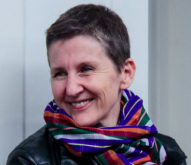
Sanja Bojanić is a researcher immersed in philosophy of culture and queer studies, with an overarching commitment to comprehend contemporary forms of gender, racial and class practices, which underpin social and affective inequalities specifically increased in the current political contexts. She studied philosophy at the University of Belgrade, and expanded and tailored her interests as a graduate student at the University of Paris 8, where she obtained an M.A. in Hypermedia Studies at the Department of Science and Technology of Information, and an M.A. and Ph.D. at Centre d’Etudes féminines et d’etude de genre, a process that ultimately led to interdisciplinary research based on experimental artistic practices, queer studies, and particularities of Affect Theory. She worked at the Institut National d’Histoire de l’Art (Louvre, Paris), Nouvel Observateur (Paris), and Laboratory for Evaluation and Development of Digital Editing, Maison des Sciences de l’Homme (Paris Nord, St. Denis), taught at the University of Aberdeen before joining the University of Rijeka where she is now the Executive Director of the Center for Advanced Studies Southeast Europe (CAS SEE) and the vice-dean for international cooperation of the Academy of Applied Arts.

Srđan Laterza works as a writer and a creative director, crafting interactive experiences and communication strategies for leading brands, advertising agencies, IT companies and cultural institutions. He is the author of indie game exhibition Politics of Emotions, (Croatian Designers Association, 2018) and festival 1000 new lives, focused on many ways games, impact art and society (Museum of Contemporary Art, Zagreb, 2019). Together with Goethe Institut and Institut français, Srđan created Interactive Empathy, interactive storytelling education program, in collaboration with REBOOT conference, Animafest animation festival and the local universities
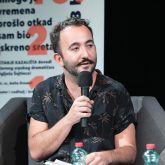
Srđan Sandić graduated from the Faculty of Political Sciences, Journalism Study Program, Center for Peace Studies, Peace Studies Program, the UN Academy and the Zagreb Centre for Women’s Studies, and is currently finishing his M.A. study program in Comparative Literature at the Faculty of Humanities and Social Sciences in Zagreb. He has written and still writes articles for literary and political journals and web portals such as Moderna vremena, Vizkultura, forum.tm, Prosvjeta, Književna republika, Književni pregled, Kazalište, GLOBUS, lupiga.com, and others. He has worked as a dramaturge and playwright for the Croatian Radio and several theatres (teatar &TD, Mala Scena, ZPC, HNK Ivan Pl. Zajc) and participated in a series of drama and theatre workshops and seminars. He writes literary and theater critiques. Selected published works: S(i)nu bez s(i)nova (Sandorf, 2012), Književne večeri sa Srđanom Sandićem (Velvet, 2013), Vrati se i kaži zbogom (co-written with Raphaelle Oskar, Croatian Writers Society, 2014).

Vedran Vivoda was born and raised in Rijeka, where he completed his history and computer science studies at the Faculty of Philosophy. After working in the school system, he opened Crane 51. He works in the field of youth education, EU funds, waste management and video game development. He was a member and president of the Association “3. Zmaj” and editor of several issues of the fanzine “Eridan”, published by the same association. He was organizer of several conventions of fiction “Rikon”, editor of the sound book for blind and partially sighted persons “Children of the Sun”. Since 2017 he is also a columnist for Children’s Magazine – Brickzine (ECoC 2020). In 2017, he completed a video game writing course at the Machina – Academy of Video Games. In 2018, he launched his own Temporium game project in which he is the lead writer and project manager. In addition, he founded the Association of Game Producers of Primorje- Gorski Kotar County and is the current president. The Association has organized a series of events: Global game jam, four Meetups of game developers, a panel within the Games and Politics exhibition, and two RiSpawns as part of the Tobogan Children’s Festival (ECoC 2020).
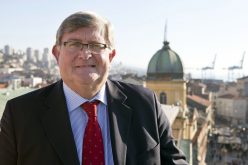
Vojko Obersnel has has been the mayor of Rijeka since 2000, presently serving his sixth term of office. He has been member of SDP – Social Democratic Party since 1990. He was born in Rijeka in 1957. He holds a master’s degree in natural sciences and medicinal genetic. Until 1997 he worked at The Medical faculty in Rijeka. By introducing the new standards regarding the operation of city administration, including the openness towards citizens and a manner of governing, Obersnel transformed Rijeka into the most transparent city in Croatia. All his mandates are marked by a strong municipal social care program that protects numerous citizens. His current mandate is also marked by the extraordinarily successful use of EU funds, which are employed to fund big developmental projects in Rijeka. Obersnel served as the president of The Association of the Cities and Communes of the Republic of Croatia. Currently, he is one of the vice-presidents of the European Committee of Regions and a member of the Commission for the Environment, Climate change, and Energy, as well as of the Commission for Territorial Cohesion Policy and EU Budget. In 2009 Obersnel signed the Covenant of Mayors for Climate and Energy. He is a Member of the Managing Board of the International Association of Cities and Ports.

Vuk Ćosić is one of pioneers of net.art in the nineties, later also digital strategist and consultant on corporate and political projects in Slovenia. Lives between Ljubljana and Rijeka. Frequently exhibits (Manifesta, Zurich; Whitechappel, London; Venice Bienial; Habana Bienial; Manifesta, Zurich; ICA, London; Beaubourg, Paris; Reina Sofia, Madrid; Garage, Moscow; ICC, Tokio; Kunsthalle, Vienna; Digital Artlab, Tel Aviv; ZKM, Karlsruhe; Ars Electronica, Linz; Castello Rivoli, Torino; Walker, Minneapolis; Postmasters, NYC; Friedricanum, Kassel) and lectures (Museums: Castello Rivoli, Torino; Beaubourg, Paris; Guggenheim, Venice; CCA, Glasgow; Thing, NYC; LAMoCA, LA; Cabaret Voltaire, Zurich).
